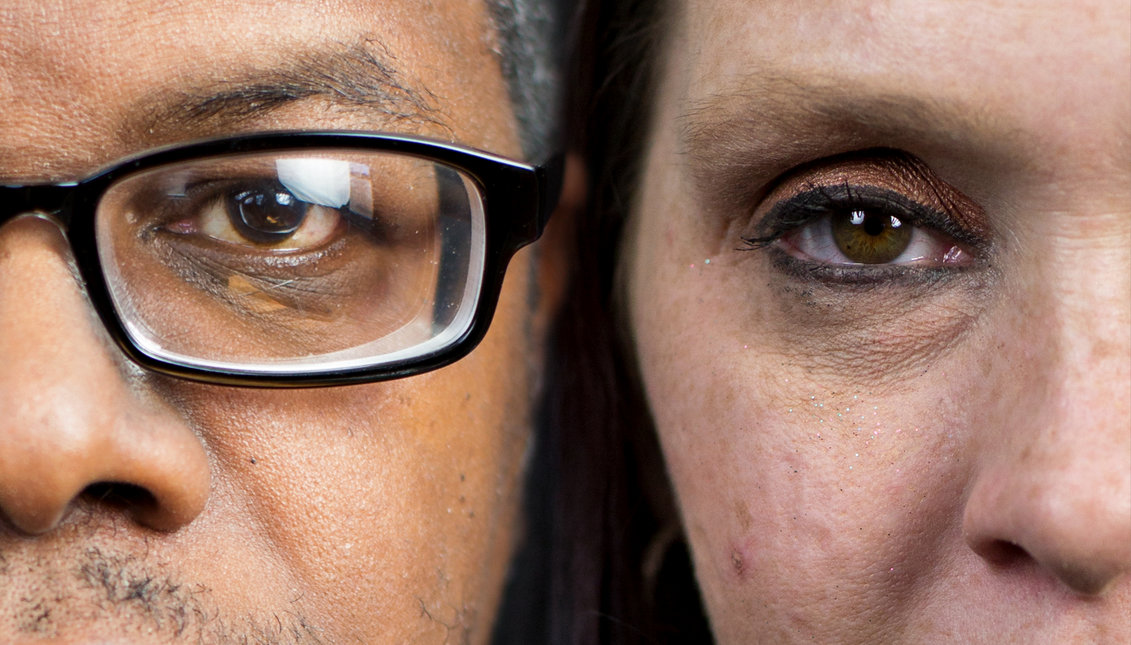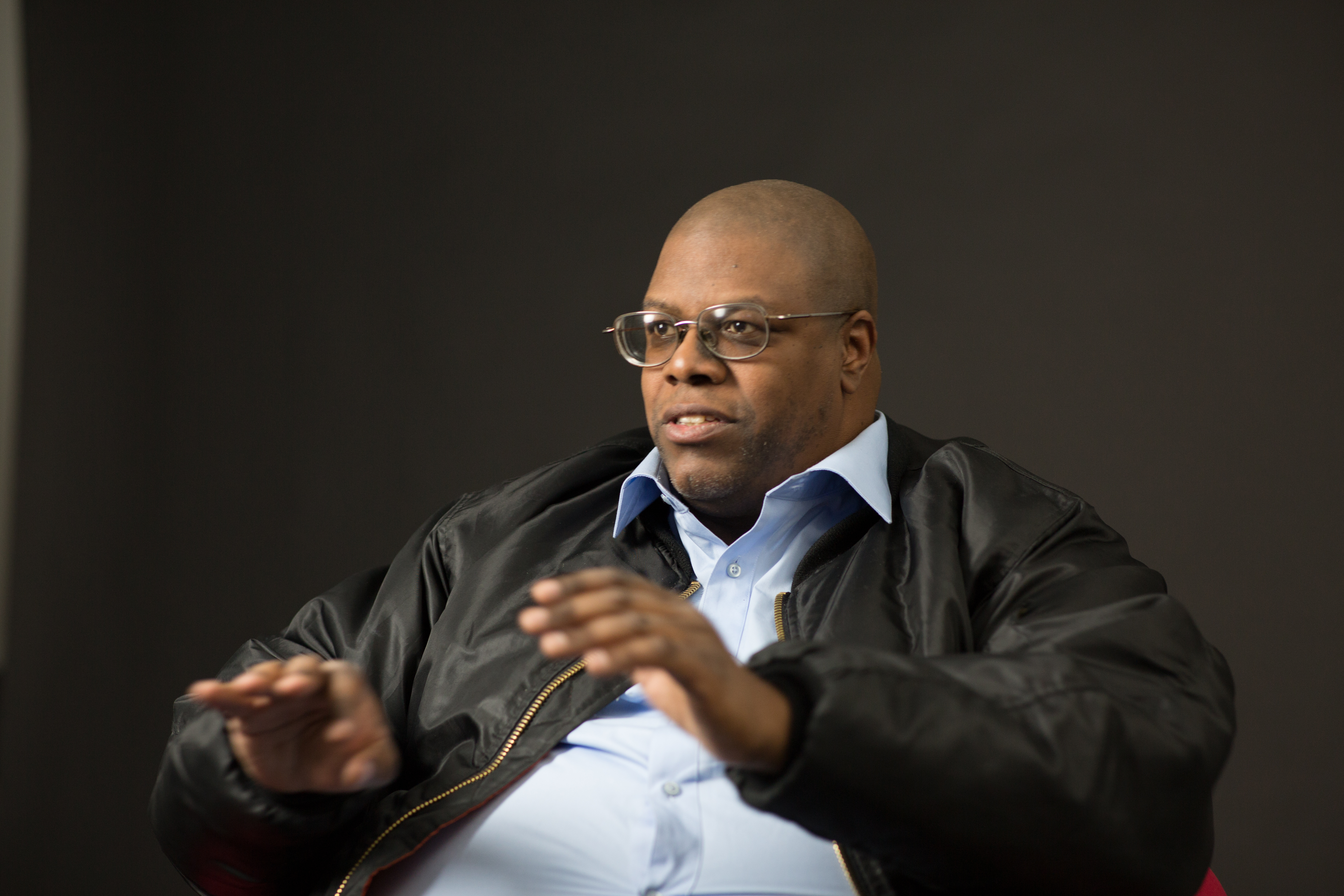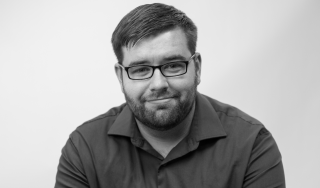
Showing Hate an Open Door
Anti-racist activist Daryle Lamont Jenkins, Executive Director of One People’s Project, works to change the hearts and minds of white nationalists.
Ignoring blights on our society—hatred, racism, bigotry—won’t make them go away.
It’s a philosophy demonstrated by Daryle Lamont Jenkins, founder and Executive Director of One People’s Project (OPP). Since 2000, this Philadelphia-based organization has worked to monitor, research, and report on the activities of far-right hate groups and individuals.
“Our mission is to get people proactive against those more harmful elements on the right," Jenkins explained during an interview with AL DÍA. “Basically, (to) diminish their ability to function.”
OPP’s mission has taken Jenkins and his group around the country. They frequently attend rallies, protests and other events organized and/or attended by ideologues on the far-right, confronting and questioning them face to face. Right-wing provocateurs whom Jenkins has debated on the spot include notorious white nationalist Richard Spencer, President of the National Policy Institute; Andrew Breitbart, the late founder of Breitbart News; and prominent Islamophobes Pamela Geller and Robert Spencer.
In addition to his efforts to expose right-wing extremism, Jenkins has become a public voice for Antifa, a concept that he believes has been misconstrued by mainstream media outlets. The Antifa movement is not a violent faction, Jenkins attests, but a broad categorization that applies to everyone opposed to authoritarianism and suppression.
“Antifa is short for anti-fascist,” Jenkins said. “You don’t have to wear a black mask or black clothes and break a window as they try to say we do. You have to just be you. You just have to say you will not do this in today’s society. You will not do this in my neighborhood, in my community. That’s what Antifa is.”
Some might call OPP’s style in addressing hatred overly aggressive, even invasive. In addition to in-person confrontations, the group publishes on its website the personal information of far-right individuals, including names, locations, and dates of birth. OPP is also known for informing people about racist activities that are happening in their communities to encourage counter-action, whether it be alerting people about an upcoming event organized by a hate group or making public the fact that someone living in their neighborhood is a racist.
Whether or not one can agree with OPP’s method, the strategy has proven effective in thwarting far-right activities. For example, in 2010, the group was responsible for shutting down the biannual conference of American Renaissance, a publication that refers to itself as “race-realist” but has been described as “white supremacist.”
OPP spread the word about the event and who was attending, Jenkins said, which resulted in anti-racist protesters calling hotels in the surrounding Washington, D.C. area to inform their management about the kind of people they were doing business with.
“We basically just let people know what was going on and they responded by calling the hotels and telling them, ‘Yo, this is what’s happening. This is the kind of group they are,’” Jenkins recounted.
The hotels’ management responded by ending their contracts with American Renaissance, leading to the cancellation of the conference, which Jenkins refers to as one of his proudest moments with OPP.

Jenkins acknowledges that U.S. society has come a long way in terms of civil rights, but threats persist. White nationalists, white supremacist, neo-nazis, the alt-right—whatever term you want to use—these people believe they have a champion in President Donald Trump, making OPP’s work all the more necessary.
“We fought quite a bit over the past 50, 60 years to get to this point, but these folks are still out there,” Jenkins said. “These folks are still trying to get back to where they were. Back to when they thought America was great."
And these people are trying to obtain political power. Jenkins said OPP regularly attends the Conservative Political Action Conference (CPAC) because that’s where he finds far-right power-seekers touting white nationalist ideas and philosophies. (What does that say about the current state of the Republican Party?)
Two examples of white nationalists in Pennsylvania who are attempting to build political influence include Steve Smith and Ryan Wojtowicz, two members of Keystone United (formerly known as Keystone Skinheads), a statewide hate group. Both Smith and Wojtowicz serve on Republican committees in Luzerne County.
While OPP has been effective as an obstruction of hatred, the organization also offers support to people who no longer want to be involved in the white power scene.
“The most important thing about One People’s Project is that we have an open door policy,” Jenkins said. “Yeah, we’ll fight you, we’ll argue with you, we’ll yell and scream at you and call you bad names on the website, but the bottom line is we are going to be approachable.”
This attitude is evidenced in the case of Bryon Widner, a reformed white supremacist who struggled to move beyond his former life and find employment because he was covered in white power tattoos (many of which were on his face). Widner was desperate for a solution when his wife reached out to Jenkins, who the couple had only previously known as an antagonist.
“It was pretty much a last-ditch effort,” Jenkins recalled. “We never talked before and, as far as they were concerned, I was the boogeyman.”
Jenkins connected Widner with the Southern Poverty Law Center, which eventually found the former white supremacist a donor willing to pay for tattoo removal procedures that proved to be excruciatingly painful for Widner. The experience is the subject of the 2011 MSNBC documentary “Erasing Hate,” and it will soon be the focus of a feature film that’s set to begin production this month.
While Widner’s story is well documented, he is not the only example of how the presence of Jenkins and OPP in the lives of white supremacists has helped them to move on.

The first time Erica Hardwick spoke to Daryle Lamont Jenkins, it was after One People’s Project put her face on a flyer.
The flyer was meant to inform the people of York, Pennsylvania, that white power activists would be holding a rally in their town in January 2002. Back then, Hardwick had not realized that's what she had become—a white power activist.
“I give Daryle a lot of credit for changing my life because he made me stop and think, ‘What the hell are you doing? Why are you doing this?’” Hardwick said.
Hardwick, who grew up in Virginia, spoke with AL DÍA about how she became involved in the white hate movement. When she was a teenager, she said her boyfriend at the time had introduced her to neo-nazi music, and when she was downloading one of those songs on file-sharing website Napster, she met a man named Billy Roper in a chat room.
Roper was the membership coordinator for the National Alliance, a white supremacist political organization founded by William Pierce, the author of "The Turner Diaries," a novel notorious for its influence among the racist right. Hardwick said she lived about an hour away from the National Alliance headquarters, and Roper invited her to go bowling.
“He didn’t say, ‘Hey, let’s go spread some hate and raise some hell,’” Hardwick recounted. “He said, ‘Let’s go bowling.’”
After that, Hardwick became increasingly involved in the National Alliance, building relationships with white supremacists around the country. She believes she was susceptible to the group’s message because she had always been an outsider.
“I’ve never been one of those people that’s been very socially adept,” Hardwick said. “All of a sudden, I had all of these people around me and they liked me.”
RELATED CONTENT
“There was unconditional acceptance so long as you spoke the same language they did,” she continued. “So long as you looked the same as they did. So long as, ultimately, you did what they told you to do."
Hardwick developed into a white power activist, eventually relocating to Philadelphia. Here, she said Roper assigned her different tasks in an attempt to raise awareness of the white hate movement and garner media attention, including putting stickers around the city, bearing slogans like “The White Race: Earth’s Most Endangered Species.”
While engaging in these activities, she said two of her friends in the organization were arrested for posting stickers on a war monument. Hardwick was confident that the white nationalists she had grown so close to—the ones she believed always looked out for each other—would bail her friends out of jail and provide them legal defense, especially because they were arrested while working to promote the National Alliance.
It didn’t happen, and it’s when she began to notice the hypocrisy that exists within white power circles.
She went on to learn that some of her white nationalist friends, who had condemned minorities as a drain on society, were on government assistance themselves. She went on to learn that some of her white nationalist friends, who vehemently denounced the use of narcotics as unacceptable, were using drugs themselves.
For Hardwick, the last straw was when she realized that one of the white nationalists that she knew, a person who believed that African-Americans were responsible for the majority of sexual assaults in the U.S., was a registered sex offender.
Fed up, Hardwick decided to reach out to Jenkins. She had first contacted him in anger after she saw the flyer with her face on it, but this began an adversarial correspondence that eventually developed into an amicable relationship. While having a connection with an African-American man went against her white power beliefs, until the revelation about the sex offender, she said she had not wanted to give up on her white nationalist friends.
“I called Daryle and I said, ‘You’re not gonna believe this shit,’” Hardwick recalled. “‘I’ve gotta go. I can’t do this anymore. I’m in so deep I don’t know what to do, and I want to do something about it.’”
Before dropping out of the white power movement, Hardwick said she covertly offered OPP the membership list of the National Alliance, along with other sensitive information about the organization, which OPP went on to expose.
After she ultimately revealed to her former friends that she not only no longer believed in the white power movement, but was actively working against it, white supremacists threatened violence against her and her family. While her family was never harmed, Hardwick said she was attacked several times.
Since that chapter of her life, she’s tried to keep a low profile.
For people who are involved in white nationalism, Hardwick has this message: “You know it’s a joke.”
“They know that it’s full of hypocrisy,” Hardwick said. “I can say from personal experience that my involvement with white nationalism never made me look anything other than stupid.”
The experience never provided her anything positive, she continued, “other than a false sense of belonging and security.”
“It resulted in criminal charges for myself and my friends,” she said. “Constant disappointments, constant expenses, constant fighting, constant paranoia.”
Hardwick knows firsthand how difficult and frightening it can be for people who want to get out, for those who want to abandon the white power movement. To these people, Hardwick offers this advice: “Call and talk to Daryle.”
“I would just say reach out,” she said. “There are so many people that will be there for you, that will steer you in the right direction, that won’t leave you alone, that if you’re scared or lonely at two o’clock in the morning, will answer the phone for you.”
“There’s always a way out,” she continued. “Don’t ever feel like you’re trapped and have nowhere else to go and stuck in something that you don’t believe in because you’re only gonna end up hurting yourself.”











LEAVE A COMMENT: